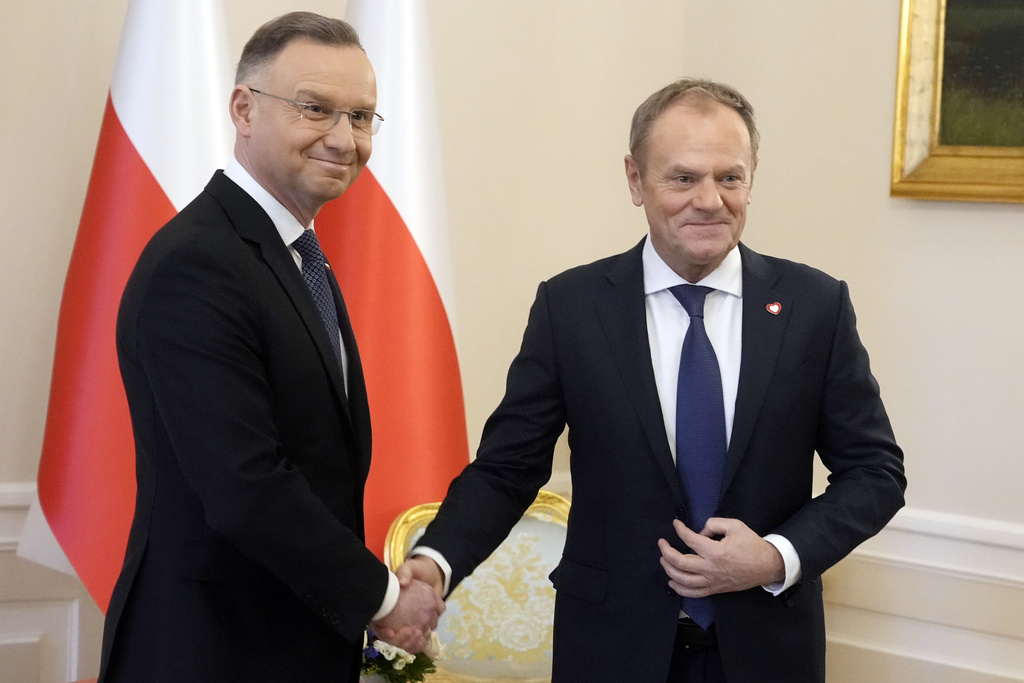In Poland, we have become so accustomed to the ongoing war between the Law and Justice Party (PiS) and the Civic Platform (PO) that few realize the current crisis is not the usual partisan skirmish.
Instead, we are witnessing a different kind of battleground. This time, it’s a clash between the judiciary and the executive branch. Not entirely, of course. A faction within the judiciary, supported by a segment of the legal profession, is locked in a struggle with the president.
It’s a fight over power, and the concept of the separation of powers is not as straightforward as it has long been portrayed, because democracy thrives on the principle of checks and balances, or a system of countervailing and restraining powers.
Legal professors who never objected to individual abolition for years have suddenly changed their stance after its first application in Poland. Today, they express outrage that using abolition in the form of executive pardon is nothing less than an interference in the judiciary. And this is precisely the point.
The president (the executive) now has a tool to correct actions of the court that may not serve the state’s best interests.
The courts wish to possess ultimate power, but every authority needs checks to prevent corruption. The legal debate on the presidential power to pardon seems quite insular. To the ordinary citizen, who learns about legal matters from American TV shows, the fact that Poland’s leading criminal procedure textbook discusses individual abolition doesn’t mean much.
It’s easier to digest the question: How can one pardon the innocent? (Conservative lawmakers Maciej Wąsik and Mariusz Kamiński were pardoned in 2015 and lawyers questioned whether Duda could have pardoned them before a court issued a final ruling in the case). After all, everyone is presumed innocent until proven guilty. Especially when supported by the text: Modern law does not recognize such a situation.
Yet, it does. Why didn’t Nixon stand trial? Because Ford pardoned him. Was he convicted by any court? No. He wasn’t tried because Ford pardoned him for any crimes he might have committed while in office.
The American president can pardon even before charges are brought, and this is largely unchallenged, seen as a part of the checks and balances system. The idea is that if the judiciary oversteps, the executive can intervene.
The U.S. Constitution states regarding pardons: “He shall have Power to grant Reprieves and Pardons for Offences against the United States, except in Cases of Impeachment.” In Poland, it’s articulated as: “The President of the Republic may exercise the right of pardon. This right does not apply to persons convicted by the State Tribunal.”
Despite the need to distinguish between state and federal law in the U.S., it seems someone might have taken inspiration from another’s work.
Using the United States as an example in discussions about pardons, one often hears that their legal system is different. True, it is. But the world learns the principles of democracy from them. Interestingly, and often overlooked, individual abolition, or the power to exonerate before a final verdict, exists in seven European countries and Israel. It is not an aberration.
In Poland’s constitutional setup, the president, whether we like him or not, holds the greatest legitimacy. The decision of his election involves the most people. Hence, he can make various decisions on our behalf. For instance, he can veto a law, grant citizenship, award a medal, and yes, pardon. On our behalf. And any attempt to strip him of this right is essentially depriving all of us of that right.






